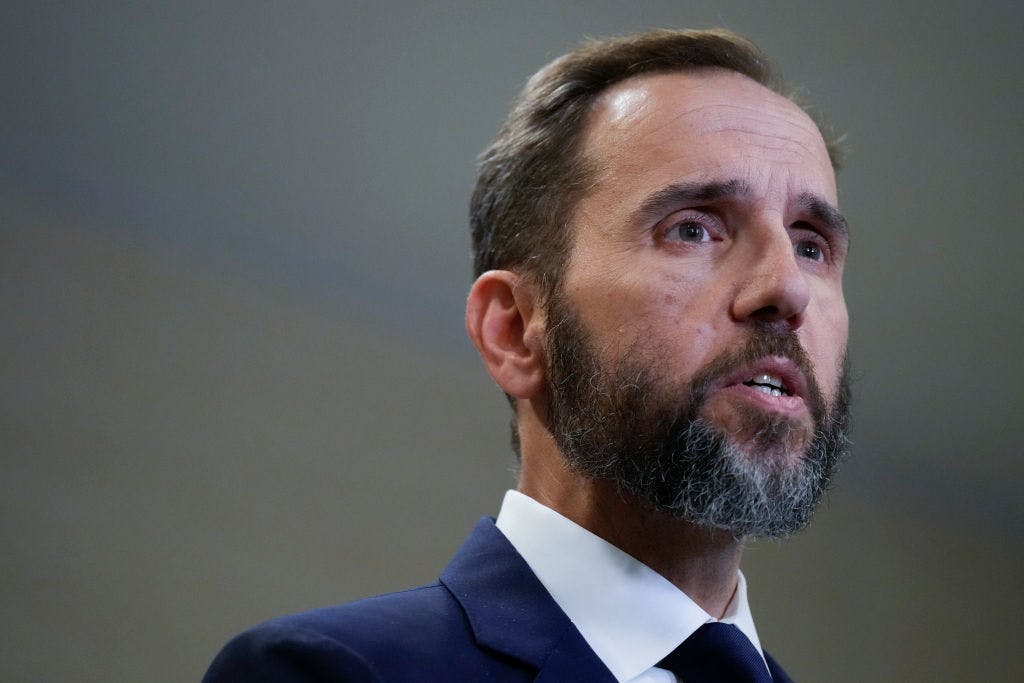Jack Smith Is On a Roll in Race To Convict Trump Before Judge Cannon, Just in Time for Trial
A high-stakes hearing on Friday, though, will decide whether a jury sees the Mar-a-Lago case before the summer, or at all.

Special Counsel Jack Smith, whose January 6 case against President Trump is frozen pending Supreme Court review, is now stringing together victories in the courtroom of his toughest judicial draw, Judge Aileen Cannon.
A ruling by Judge Cannon that Mr. Trump’s two co-defendants in the classified documents case — the valet Waltine Nauta and the Mar-a-Lago employee Carlos De Oliveira — will not be able to view the contents of those records is a vindication of Mr. Smith’s position. It comes on the heels of the jurist rebuffing a request from Mr. Trump for a delay in a pretrial deadline.
In keeping the secret documents sealed — Mr. Trump will be permitted to view them under certain conditions — Judge Cannon allowed that Mr. Smith had “made a sufficient showing” in arguing that allowing Messrs. Nauta and De Oliveira to see the contents of the documents would not be “relevant and helpful.” That could be because, unlike the 45th president, the pair are not charged with violation of the Espionage Act.
Messrs. Nauta and De Oliveira, though, are charged with making false statements, obstructing justice, and “corruptly altering, destroying, mutilating, or concealing” documents. Judge Cannon found that “unlike the charges brought against Defendant Trump … the document-related charges against Defendants Nauta and De Oliveira do not require proof that they willfully retained documents ‘relating to the national defense.’”
Judge Cannon explains that Mr. Smith does not “intend to present evidence suggesting that Defendants Nauta and De Oliveira acted with an inculpatory purpose specific to them and to the 102 classified-marked documents seized from Mar-a-Lago.” This means that the government does not plan to show that Mr. Trump’s camarilla knew what was in the documents — the special counsel will assert that they were just following the boss’s orders.
Mr. Smith could have another win coming down the pike in South Florida. He has asked Judge Cannon for a “reconsideration” of her order to unseal the identities of two dozen potential witnesses in the case. He maintains that the ruling is “clear error” — the special counsel alleges that Judge Cannon applied the wrong legal standard — and will result in “manifest injustice.”
The brief in which Mr. Smith laid out that argument leaned heavily on precedent culled from the United States Court of Appeals for the 11th Circuit, the appellate court that oversees Judge Cannon. Mr. Smith could be telegraphing that any adverse ruling will result in an immediate appeal. At an earlier stage of the case, Judge Cannon’s appointment of a special master and freezing of the case were resoundingly rejected by that higher court.
In repudiating her appointment of a special master, the riders of the 11th Circuit wrote that “the law is clear. We cannot write a rule that allows any subject of a search warrant to block government investigations after the execution of the warrant. Nor can we write a rule that allows only former presidents to do so.” They accused her of a “radical reordering of our case law limiting the federal courts’ involvement in criminal investigations” and violating “bedrock separation-of-powers limitations.”
While the special counsel is likely heartened by any sympathetic ruling before a judge appointed by Mr. Trump in 2020, who has often ruled against him, the high-stakes stretch of the litigation is just set to commence. On Friday, Judge Cannon will hear arguments with respect to the May 20 trial date that she set months ago. Mr. Trump has requested an “indefinite” delay until 2029, after a potential second Trump term concludes.
One of Mr. Trump’s attorneys in Florida, Todd Blanche, said at an earlier hearing with respect to the May 20 start that “we most certainly are going to ask to move that trial date.” One scenario that Mr. Trump could pursue would be for Judge Cannon to delay until late summer, which would then put Judge Tanya Chutkan, of the District of Columbia District Court, in a quandary.
As Election Day approaches, scheduling Mr. Trump’s panoply of criminal cases is becoming a byzantine endeavor. Judge Chutkan has already vacated her March 9 date as the former president’s appeal of the immunity issue wends its way through appellate tribunals. That leaves just the summer, though, to hold trials before Judges Cannon and Chutkan. If the former schedules her for, say, August, the January 6 case could have to wait until the election’s eve.

